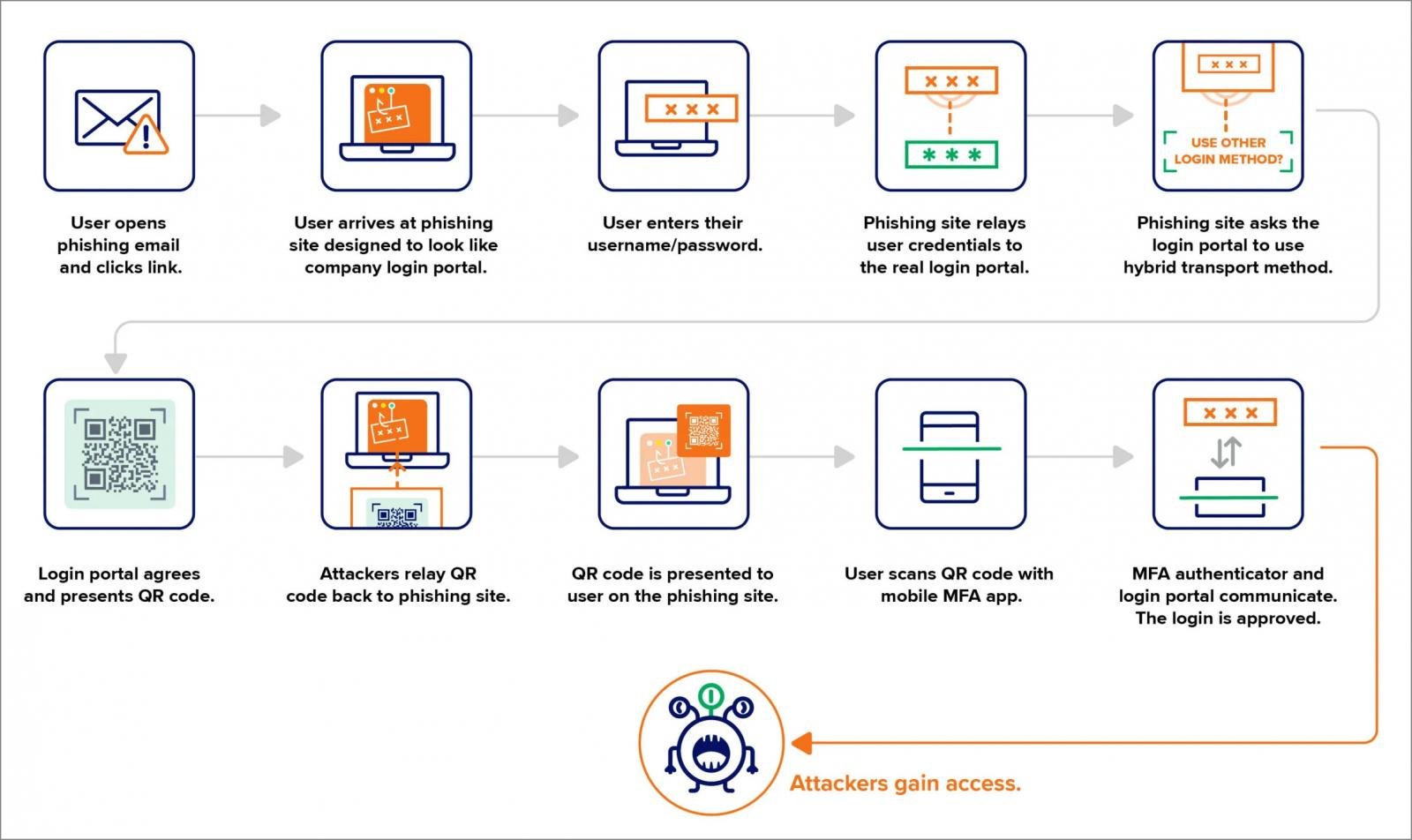The Poisonseed Phishing marketing campaign bypasses crucial protections in FIDO2 safety, abuses Webauthn’s cross-device sign-in capabilities, tricking customers into approving login authentication requests from pretend firm portals.
Poison menace actors are identified to make use of huge phishing assaults for monetary fraud. Prior to now, they delivered emails containing cryptographic seed phrases used to emit cryptocurrency wallets.
In current phishing assaults noticed by Expel, poison seed menace actors don’t exploit the safety flaws of FIDO2, however somewhat abuse respectable cross-device authentication capabilities.
Cross-Machine Authentication is a WebAuthn characteristic that permits customers to sign up to 1 system utilizing the safety key or authentication app of one other system. As a substitute of requiring a bodily connection, akin to connecting a safety key, authentication requests are despatched between gadgets by way of Bluetooth or QR code scanning.
The assault begins by directing customers to phishing websites which can be impersonating company login portals akin to OKTA and Microsoft 365.
When a consumer enters their credentials into the portal, the marketing campaign makes use of an intermediate (AITM) backend to quietly log in real-time with the submitted credentials from the respectable login portal.
Customers focused in an assault sometimes use a FIDO2 safety key to validate multifactor authentication requests. Nonetheless, the phishing backend will as an alternative instruct the respectable login portal to authenticate utilizing cross-device authentication.
It will lead to a respectable portal producing a QR code and sending it to the phishing web page, which can be exhibited to the consumer.
When a consumer scans this QR code utilizing a smartphone or an authentication app, the attacker approves login makes an attempt initiated.

Supply: Expel
This technique successfully bypasses FIDO2 safety key safety by permitting attackers to provoke login flows that depend on cross-device authentication as an alternative of the consumer’s bodily FIDO2 key.
Expel warns that the assault doesn’t exploit flaws within the FIDO2 implementation, however as an alternative abuses respectable options that downgrade the FIDO key authentication course of.
To mitigate danger, Expel recommends the next defenses:
- Restricts geographic places the place customers are allowed to log in and set up a registration course of for people touring.
- Registration of unknown FIDO keys from unknown places and examine for unknown safety key manufacturers.
- Organizations can take into account implementing Bluetooth-based authentication as a cross-device authentication requirement. This considerably reduces the effectiveness of distant phishing assaults.
Expel noticed one other incident by which menace actors registered their very own FIDO key after breaching their accounts by way of what’s regarded as phishing and password resets. Nonetheless, this assault did not require any method to idiot customers like QR codes.
The assault highlights how menace actors discover methods to bypass phishing-resistant authentication by tricking customers into finishing login flows that bypass the necessity for bodily interplay with safety keys.


